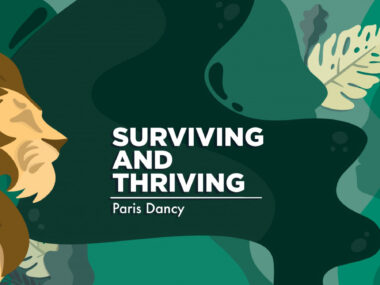Navigating with my husband the highs and lows of Cushing’s disease
Difficult times remind me how much I rely on him as my caregiver
Written by |

I’m currently not taking any of my medications for Cushing’s disease and polycystic ovary syndrome to prepare for the first steps of in vitro fertilization. My husband and I are freezing embryos so that we’ll have choices if we eventually decide to have children.
Stopping my medications — with permission and guidance from my doctors — caused all of my Cushing’s symptoms to reappear. I’d been independent for a long time, and suddenly, I found myself having to rely on my partner again as my caregiver.
My husband and I have been together for over eight years. When we first started dating, I was seemingly healthy. About two years into our relationship, in 2018, I started experiencing Cushing’s disease symptoms. Since then, we’ve dealt with periods when I was too sick to function and had to endure surgeries, procedures, lab work, and frequent doctor appointments. We’ve also had great times, such as getting engaged and married, moving into new apartments, getting our cats, attending concerts, and taking trips.
The highs
When I’m doing well, we make incredible memories. We’ve traveled to Thailand, Costa Rica, the Dominican Republic, and more. We’ve been able to learn dances together and take pottery classes. I feel like I’m truly living during these times, and that I’m able to contribute equally to our relationship.
Other positive moments are smaller. I’m able to clean the apartment more. We’re able to cook together, go out for coffee dates, and do other little things that make me feel complete.
Of course, I still experience some health challenges, but they’re more manageable. After our coffee date, maybe I’ll do some stretches for my sore muscles. Or maybe we’ll cook together, but the food will suddenly be overwhelming to me, so I’ll grab a sandwich instead. These daily struggles aren’t too hard to handle.
The lows
But then there are the lows, which I’m experiencing now. I’m acutely aware of just how much I rely on my husband. Today, for example, I was so tired that I slept for 12 hours and then tried to shower to wake myself up. I was too weak to even lift my arms, though, so my husband knelt beside the bathtub to help me wash my body.
I’m so lucky to have someone I trust enough for me to be vulnerable. That being said, no matter how much you love and trust someone, it can feel humiliating to be assisted in such an unguarded way. It’s intimidating to ask for help, especially when it’s something like, “I need to get clean, and I can’t do it by myself.”
In addition to my physical limitations, I experience mental and emotional difficulties. Without my medications, which help to balance my hormone levels, my hormones are all over the place. I can’t sleep and have been sobbing day after day. One day I was convinced that my husband would leave me, and the next I had a sensory meltdown about my hair being on my head.
Therapy is helpful, but I’ve also leaned on my husband during these low times. I’m honest about my feelings, no matter how irrational they may be. We talk through every emotion so I can understand where my meltdowns are coming from.
I’m grateful to have my husband during both the highs and the lows. Sometimes it’s hard to tell when he’s a spouse and when he’s a caregiver, but I’m grateful for both sides of him.
You can also follow my journey on TikTok and YouTube.
Note: Cushing’s Disease News is strictly a news and information website about the disease. It does not provide medical advice, diagnosis, or treatment. This content is not intended to be a substitute for professional medical advice, diagnosis, or treatment. Always seek the advice of your physician or other qualified health provider with any questions you may have regarding a medical condition. Never disregard professional medical advice or delay in seeking it because of something you have read on this website. The opinions expressed in this column are not those of Cushing’s Disease News or its parent company, Bionews, and are intended to spark discussion about issues pertaining to Cushing’s.






Leave a comment
Fill in the required fields to post. Your email address will not be published.